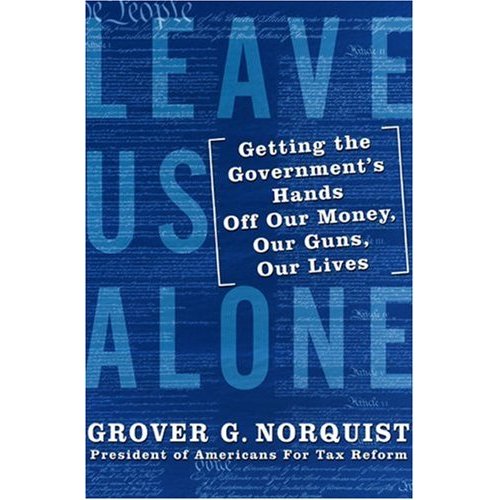 Starbucks is Hot describes how Starbucks, Inc is leading an effort to encourage large companies to be more GLBT-friendly. The article notes that in just a few short years, the number of fortune 500 companies that explicitly enumerate sexual orientation in company non-discrimination policies has gone from 25% in 2000 to 86% in 2007. [Note: I had orignially and incorrectly stated that the percentage in 2007 as 65%]. Corporate Pride lists some of the gay friendly policies some industry leaders are implementing. What's more, Corporate Pride states that over 100 major corporations include gender identity in non-discrimination policies. While we still wait (and wait) for ENDA, The Big Boys are already making the issue moot. Hell, even conservative behemoth Walmart is making strides in equality.
Starbucks is Hot describes how Starbucks, Inc is leading an effort to encourage large companies to be more GLBT-friendly. The article notes that in just a few short years, the number of fortune 500 companies that explicitly enumerate sexual orientation in company non-discrimination policies has gone from 25% in 2000 to 86% in 2007. [Note: I had orignially and incorrectly stated that the percentage in 2007 as 65%]. Corporate Pride lists some of the gay friendly policies some industry leaders are implementing. What's more, Corporate Pride states that over 100 major corporations include gender identity in non-discrimination policies. While we still wait (and wait) for ENDA, The Big Boys are already making the issue moot. Hell, even conservative behemoth Walmart is making strides in equality.Now, I understand that although the trend is positive, some may be skeptical that it's lasting, and a federal law would not ensure that more companies join the bandwagon, but that none will get off it later. I am not as opposed to non-discrimination laws as I am to hate crime laws (non-discrimination ensures only that protected groups are treated the same ans non-protected ones), but I am more optimistic for the reason that being gay-friendly makes economic sense!
Gay people, though a minority, make up a considerable share of the market (and I don't even mean just because of the living-above-their-means-hyper-consumer stereotype). A reputation
 for being gay friendly is likely going to give a company an advantage over its gay-neutral or gay-hostile competitors, by attracting not only gay customers but also customers who support the gay community. It just is bad business to be hostile and to alienate this group, along with it's supporters from a customer base by giving in to irrational bigotry. Furthermore, gays are more than just consumers, they are workers, and workers who statistically have a higher level of education than the general population. Gay inclusive non-discrimination policies attract this pool of workers, and it would be silly not to try to capture part of it.
for being gay friendly is likely going to give a company an advantage over its gay-neutral or gay-hostile competitors, by attracting not only gay customers but also customers who support the gay community. It just is bad business to be hostile and to alienate this group, along with it's supporters from a customer base by giving in to irrational bigotry. Furthermore, gays are more than just consumers, they are workers, and workers who statistically have a higher level of education than the general population. Gay inclusive non-discrimination policies attract this pool of workers, and it would be silly not to try to capture part of it.Certainly there is an economic cost to these policies, for instance Disney's gay days that attracted boycott from the Theocrat crowd. While there may be some backlash from certain elements, the economic advantage almost certainly outweighs this cost (or else they wouldn't do it). Although many in this country are still very homophobic, one would have to be blind to think that gays haven't come a long way and that things are still improving for us. While few companies have the courage to be the pioneer in possibly controversial social causes, when public opinion shifts as I think it is, even fewer want to be the dinosaur. You may think it unseemly to break down something that is a "moral should" to something as base as economic advantage, but in the end, it's what works. Selfish motives are stronger than altruistic ones, and outcomes based on profit are more robust than outcomes based on moral guilt-tripping and especially those based solely on fiat. That's just fine with me.



3 comments:
Pink -- or should I say, Andrew Sullivan-light,
First, I think that this sort of post blends your "real" and "blog" personalities well. We get a glimpse of some part of your life, but one that also connects to broader concerns. This is not just a policy brief, but a story about your reading gay magazines.
More to the point, I think that voluntary change often really is the best. The problem with top-down change initiated by the government is that it almost always is the occasion for significant backlash. This perhaps is most evident with court decisions: consider all the amendments that modified various state constitutions after the Goodrich decision in Massachusetts. A win for gays in one state ended up sparking campaigns across the country to re-write state constitutions. (For more on this general trend, see Gerald Rosenberg's brilliant book, "The Hollow Hope: Can Courts Bring About Social Change?)
Now, this does not mean that the government should never intervene, or that the injustice involved cannot be so great that a law or court decision is desparately needed, regardless of the consequences. But when government does intervene, it always picks winners and losers, one side over the other. And as noted, this frequently causes much consternation among the losers, even if their cause genuinely is an unjust one. And sometimes these losers manage to mobilize enough to make the initial winner's victory somewhat pyrrhic. Your Disney example is the exception to the rule among companies changing on their own -- and even so, how long will people really keep up such protests?
At any rate, this is the reason I tend to favor the "libertarian" solution as much as possible. For every action, there is a reaction. Society is complex, and when change is forced from the top down, unforeseen consequences always emerge. This is a problem generally obivated by bottom-up, voluntary, market-driven change. Yes, this can proceed slowly -- sometimes TOO slowly -- but its advantages need to be considered.
This is where Sullivan's hero Oakeshott is so good. Efforts at refashioning society always are more complicated than initially thought. Being in the right is never enough. Oakeshott liked to say that perusing reforms "as the crow flies" -- in a straight line -- tends to be problematic. As humans, we zig and zag, never quite sure of where we are going. The path to justice might be a bit longer, and more complicated than we would like. This isn't an excuse to shrug off bigotry and descrimination, but rather to hope for more Starbucks-type solutions, where free individuals choose the right way forward, rather than being forced to do so.
Greed and the chase of the almighty buck will win out every time. If it makes sense for the bottom line, companies will become gay-friendly long before anything will legislate it into being.
Williams-Sonoma is also gay friendly- but I also think their offices are in San Francisco.
Post a Comment